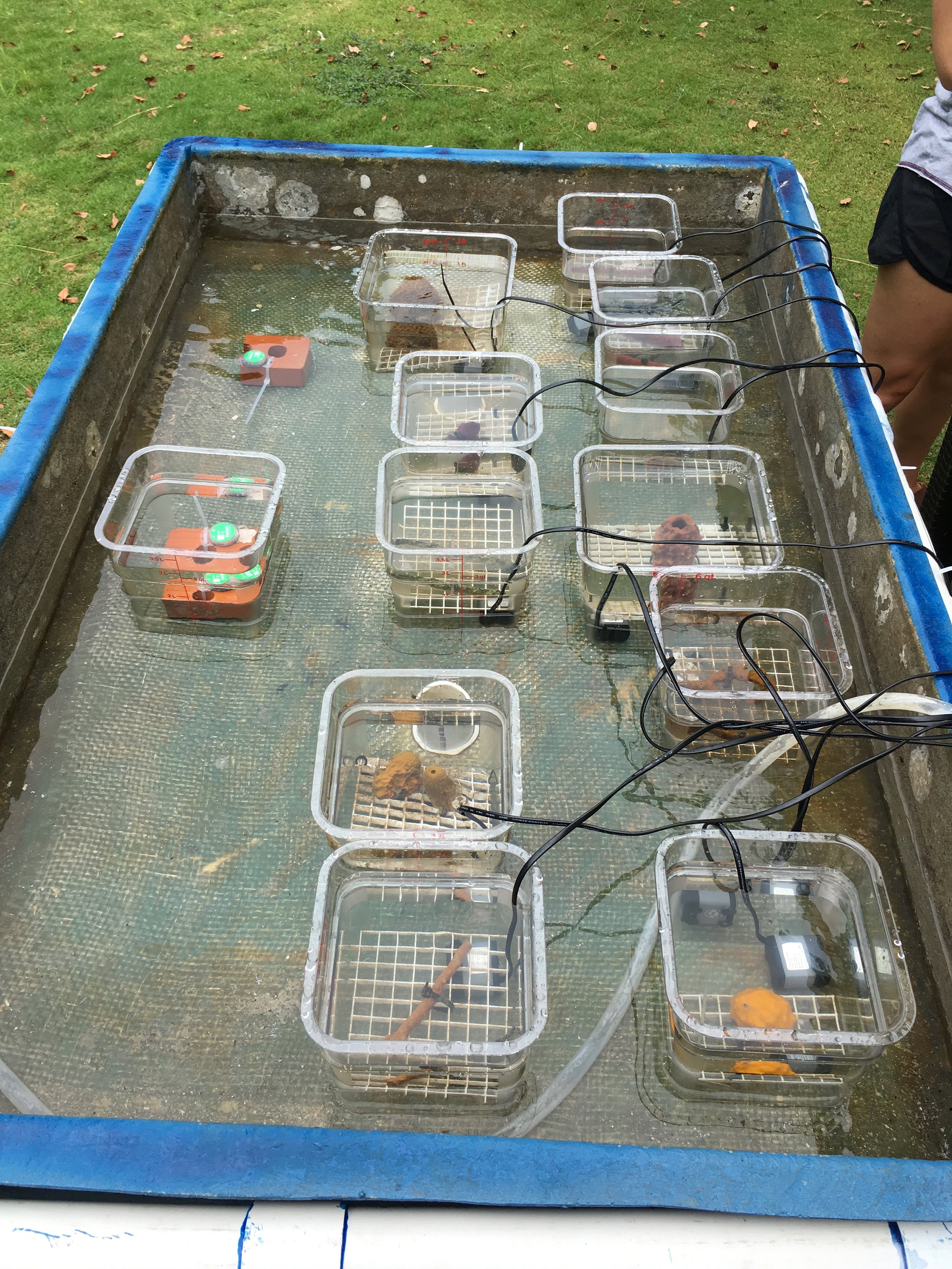I am part of a collaborative project funded by the National Science Foundation to investigate the role that microbial symbionts play in the niche partitioning of some of the most common sponge species in the Caribbean. My colleagues on this project are Dr. Cara Fiore from Appalachian State University, Dr. Cole Easson from Middle Tennesee State University, and Dr. Robert Thacker from Stony Brook University. This research uses ex situ incubations in seawater containing particulate organic matter, dissolved organic matter, or inorganic nutrients that is labeled with heavy atoms of C and N (13C and 15N). Stable isotope analysis of sponge tissue following these incubations allows us to measure the assimilation and transfer of compounds between microbial symbionts and host sponges. We also use in situ collections of excurrent (after passing through the sponge) and incurrent (prior to passing through the sponge) water to measure the removal of dissolved organic matter, living particulate organic matter, and detritus by sponges in the field. These experiments, along with characterization of sponge microbiomes, will allow us to determine the role that microbial community abundance and composition plays in host resource use. This research was conducted at the Smithsonian Tropical Research Institute in Bocas del Toro, Panama and (due to COVID-19) Mote Marine Lab in Summerland Key, Florida





















